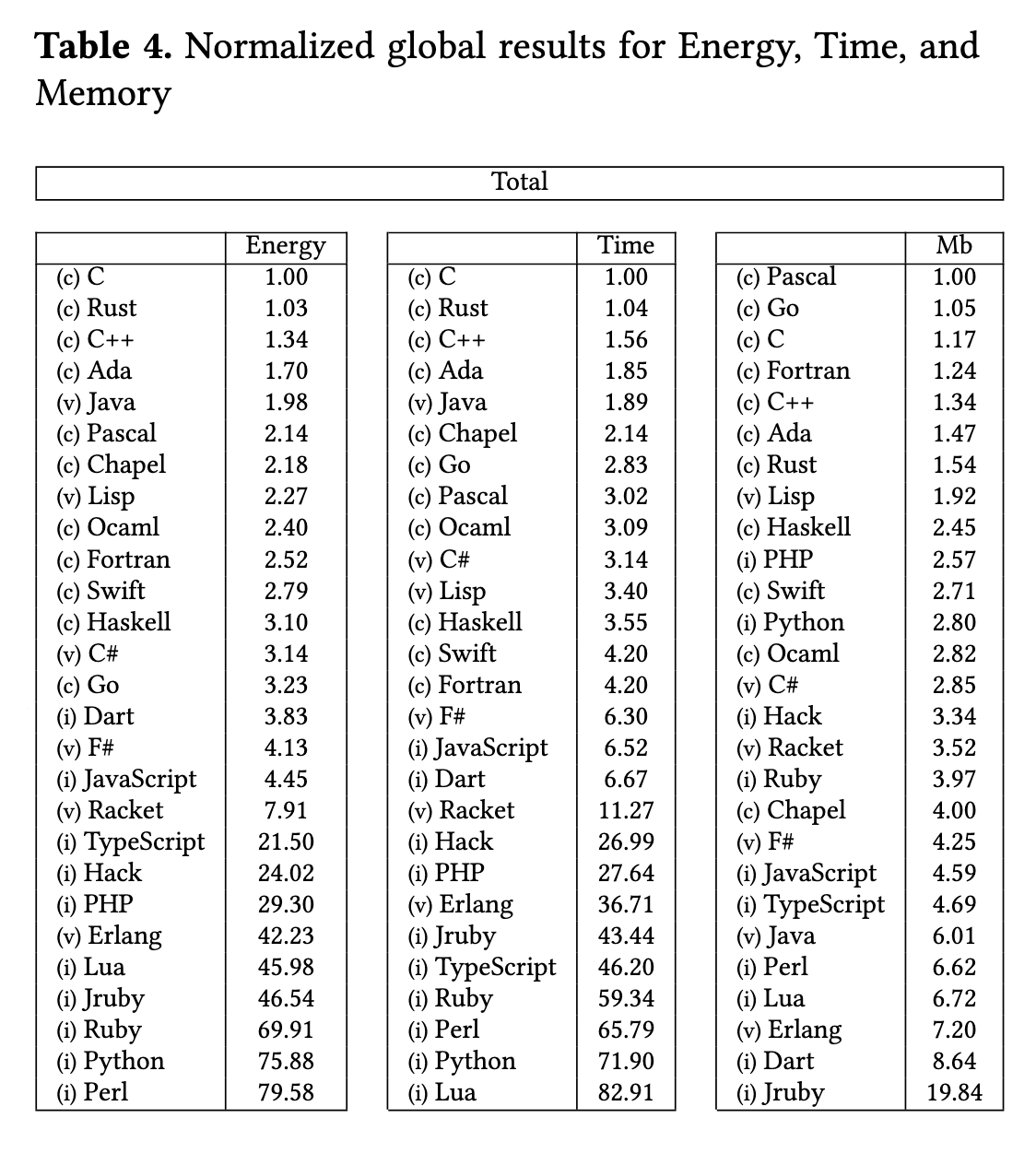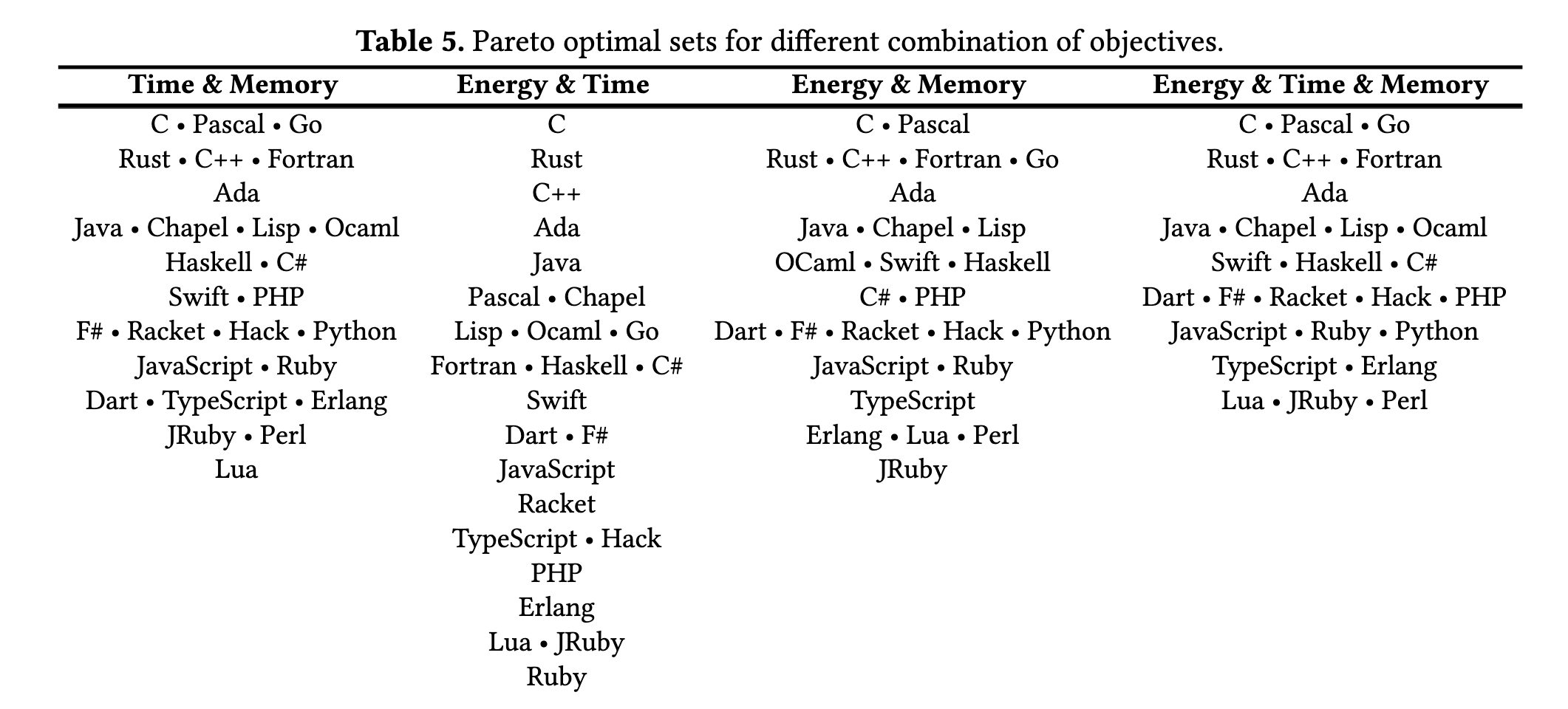This is a difficult question to answer unless, as was mentioned about benchmarks, you set some rules for comparison.
For example, comparing a Java3D first-person shooter to a PHP webpage would be unfair, as Java would lose.
If you look at Java frameworks, then you may want to compare these three:
Tomcat + JDK 6 + JSP
Apache + PHP
Scala + Lift framework
I included Scala as it compiles to java bytecode and I expect it will be cheapest for power.
I am not certain what would be the winner, I would bet on Scala, but you would want to ensure that you have the same application implemented and then just compare the power usage.
PHP will probably win as apache and PHP seems to be lower on memory usage than Java, but I can't really compare Scala and PHP.
The big unknown for me is that if you call the same java code then it has already been turned into native code and so will run more quickly, but JSP should be precompiled to take advantage of Java.
But, if you use Web2.0 technologies then it changes, as you put most of the load on the browser, if you have a large javascript application, then you are just making server calls, which will reduce power usage on the server as the render work is passed onto the browser. At that point the JIT for Java should come into play, and Java or Scala I would expect to be lower on power usage.
A big test, IMO, would be to see if we can get the same performance as we reduce the size of the machine, so, if you need 3 computers for PHP or Java, that are load balanced, and 1 Scala machine can have the same performance, then scala (using Lift) will win.


